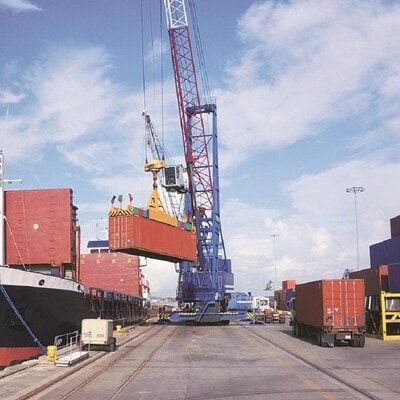[ad_1]
India’s agriculture exports contracted 3 per cent to $5.88 billion during the first quarter of the financial year due to major ‘global headwinds and tight domestic supply conditions’.
Agricultural and Processed Food Products Export Development Authority (APEDA) chairman Abhishek Dev said the current challenges in the agriculture sector include the rise in shipping costs and air freight triggered by the Red Sea crisis, fall in global prices of maize, which took a toll on exports.
Rice exports have also been constrained by export controls on certain varieties of the grain including non-basmati rice imposed by India.
During the quarter ended June this year, India exported rice – basmati and non-basmati – worth $2.8 billion, down 0.46 per cent.
The government, however, believes India will be able to catch up with last year’s rice exports in the next six months.
“There have been a lot of issues in the logistics, particularly due to the Red Sea crisis, which has been persisting and there has been an increase in cost of air freight. Due to issues between the US and China, there has been shortages in the containers also,” Dev told reporters.
According to Dev, the production of maize has been good this year. However, it resulted in a decline in prices globally.
“Even though there is good production of maize in India also, our local prices are more than international prices. Due to that, exports of maize have come down this year,” he said.
According to government data, exports of regulated agriculture items such as wheat, non-basmati rice, millet products, witnessed contraction during the first two months of the current financial year. On the other hand, exports of non-regulated agriculture including basmati rice, buffalo meat, fresh vegetables, fruits and juices, dairy products, saw 3 per cent growth.
APEDA has also identified ‘25 focus products’ where exports can be further boosted. These items include onion, basmati rice, groundnuts, cashew, banana, potato, ghee, pomegranate, and pineapple.
The government is working towards launching an online platform to tackle non-trade barriers in the next two-three months.
“All these issues take years to get resolved. But if we have an online mechanism to track and trace them, then an effective resolution is possible,” Rajesh Agrawal, additional secretary, department of commerce, said.
The trade impact of non-tariff measures on the cost of exports is higher as compared to the impact of the imposition of tariff measures, according to multiple studies.
Agrawal said that at times the cost incurred to meet the non-tariff measures imposed by a partner country. “There are studies that go on to say that non-tariff measures need greater compliance and they add to the cost, but at the same time such measures are also necessary from each country’s perspective to meet the quality requirements,” he added.
)
First Published: Jul 19 2024 | 8:35 PM IS
[ad_2]
Source link

